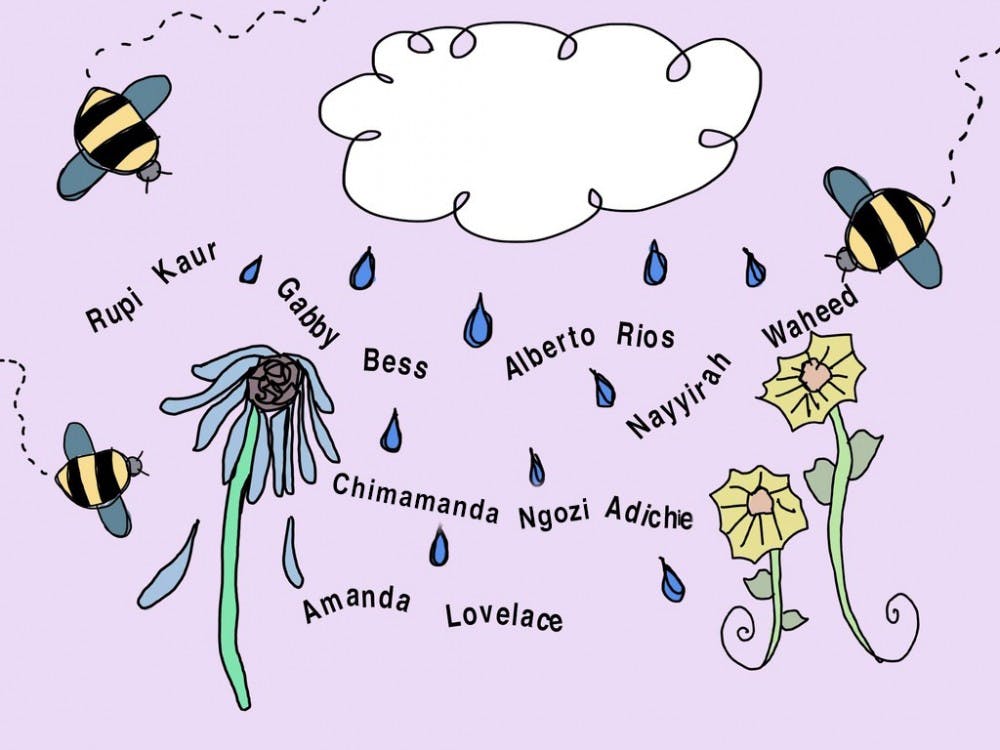Most students have studied classic literature, learned the history behind these stories and experienced, in a small way, how the world used to be.
English and history, as disciplines, share a close connection, as literature often reflects certain aspects of the world at the time it was written.
Even though modern history is taught in classrooms, modern literature written in the 21st century is often overlooked.
Katherine O’Flaherty, an honors faculty fellow at Barrett, The Honors College, said that modern literature is indeed pertinent to modern society.
“Modern literature features a lot of underrepresented voices,” O’Flaherty said. “In classical literature, we aren’t really exposed to a lot of women’s voices, or people of color’s voices, but in the twenty-first century these kinds of opinions are really being brought out.”
Chimamanda Ngozi Adichie, a modern writer, discusses themes of Nigerian culture and feminism, and is an influential promoter of social change, multiculturalism and female agency in her work.
Many novels and short stories of the 21st century reflect social issues of modern-day society. Studying or getting involved in any way with the literature of today’s times can promote discussion and the acceptance of new ideas.
A challenge that comes with this, however, is the palatability of modern-day texts.
“Things like race, for example, are always difficult for people to talk about in the classroom,” O’Flaherty said. “But I find that using fiction to talk about those subjects provides students who normally wouldn’t be comfortable with talking about these subjects with a way to discuss them.”
In addition to novels and short stories, there is also an abundance of modern poetry that deserves to be brought to the classroom.
“There’s a poet named Alberto Ríos — he was actually the Arizona poet laureate for some time — and he writes about a range of topics that students can relate to,” O’Flaherty said. “He writes about the southwest, the border, the Mexican-American experience and all those kinds of issues ... The thing about poetry is that it reflects the world around us in ways we don’t always give it credit for.”
While modern poetry can take on a political tone, it is also relatable to many young adults on a deeply personal level.
Rupi Kaur, the author of "Milk and Honey," writes short poems about heartache which are often accompanied by simple line-art illustrations. Themes such as pain and heartache are fairly ubiquitous and lend themselves to be extremely relatable to a wide audience.
“There’s some level of fear associated with poetry,” O’Flaherty said. “Some people have a sense that poetry is hard and inaccessible, and that it’s just something that other people read. When you do read it, it’s actually very relatable and understandable.”
Modern works are also more accessible nowadays with newer technology like e-readers, making it quicker and easier for people to seek and find today's most pertinent work.
For students, reading and studying literature published in recent times can prove beneficial for interpreting the social and political problems plaguing today's society.
Reach the columnist at kalbal@asu.edu or follow @KarishmaAlbal on Twitter.
Editor’s note: The opinions presented in this column are the author’s and do not imply any endorsement from The State Press or its editors.
Want to join the conversation? Send an email to opiniondesk.statepress@gmail.com. Keep letters under 500 words and be sure to include your university affiliation. Anonymity will not be granted.
Like The State Press on Facebook and follow @statepress on Twitter.




